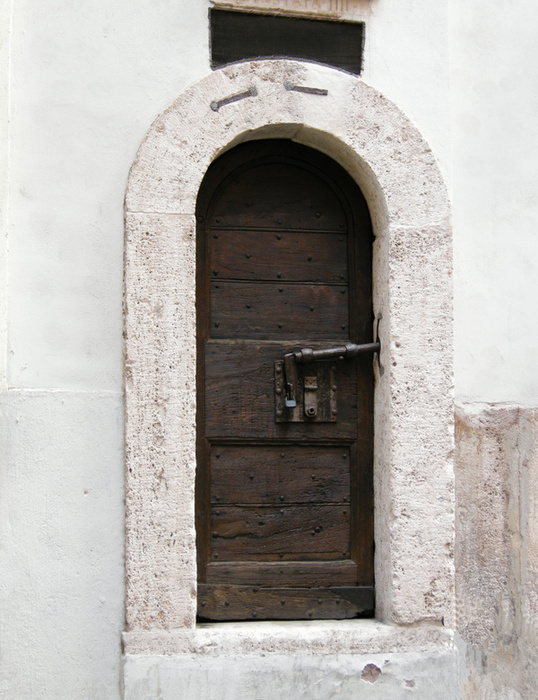
Augustus Caesar (born 63 BCE–died 14 CE)

Augustus Caesar (born 63 BCE–died 14 CE)
Group Projects (Tuesday, March 25)
Sextus Propertius (born ca. 50 BCE, Assisi, Umbria): family victims of Perusine War & Octavian's land confiscations after Battle of Philippi (Perusia, 41 BCE, Second Triumvirate); "Augustan Poet" (reign of Augustus, "Augustan Literary Age"), member of circle of Maecenas in 20s BCE after publication of Monobiblos (Book 1), increasing allegiance to Augustan reconstruction in later poems, but strongly independent poetic voice
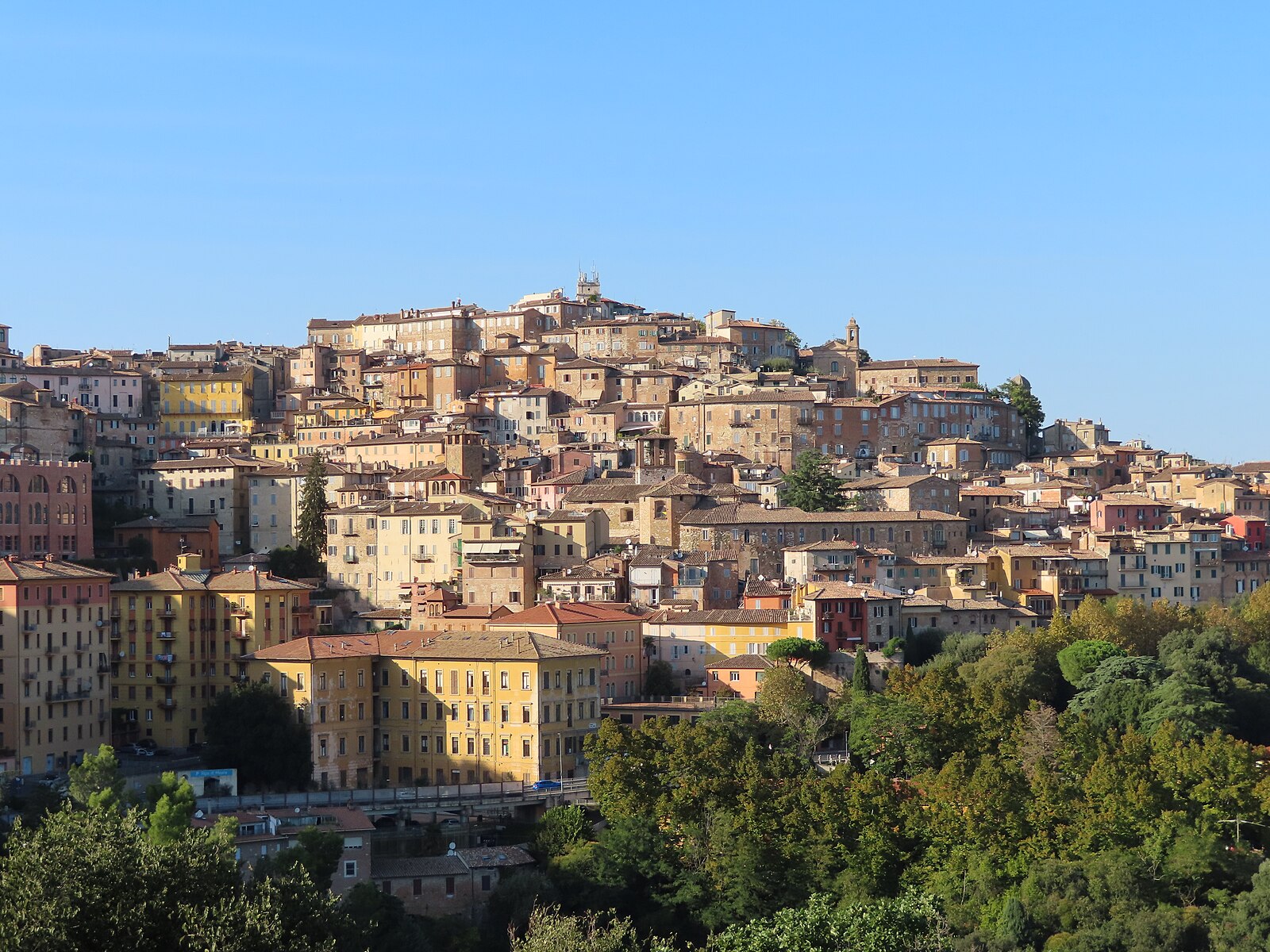
Perugia, Umbria (2023)
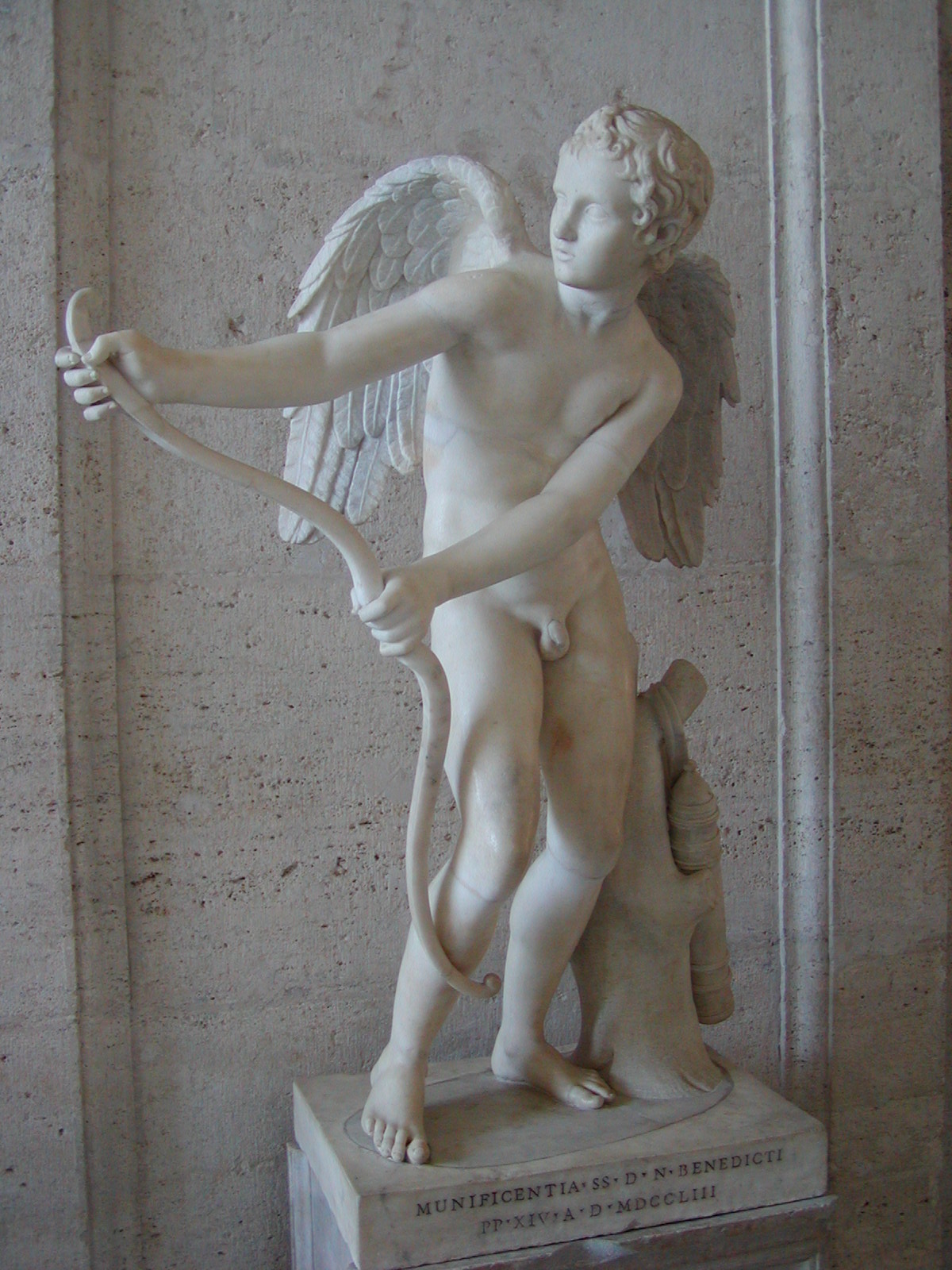
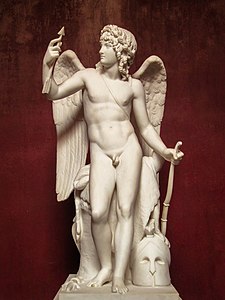
Milanion, Tullus, by refusing no trial, [addressee, political figure]
beat down harsh Atalanta’s cruelty . . . [learned mythic allusion, Milanion AKA Hippomenes]
[heroic lover Milanion's trials described]
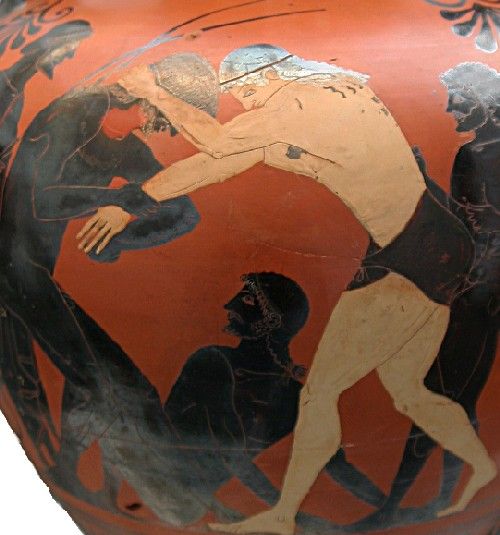
Atalanta wresting Peleus (Attic black-figure neck-amphora, 500–490 BCE)
In me sluggish Love plots no schemes,
forgets even to plod down old paths.
But you, whose tricks tempt the moon from heaven,
on magic hearths performing sacred rites,
now come change my mistress’s mind:
make her face blanch paler than mine!
Then I will believe that you rule rivers
and move the stars with Colchian song.
Friends, you call me back too late—I’ve fallen:
seek help for an unsound heart.
Bravely I’ll endure knife blade and flame,
so long as my anger can speak freely.
Carry me through exotic lands, over the sea,
wherever no woman can track me down.
To you the gods lend an easy ear: may you stay,
always equal in a safe love.
Against me our Venus wields sleepless nights
and untiring Love never rests.
I warn you—shun this evil. Let each one’s love
hold him. Don’t change love’s home.
But, oh, the one my warnings touch too late—
repeating my words will make him ache. [readership – is love poetry a remedy for love's affliction?]

Anonymous Roman aristocrat disapproving of the likes of Propertius!
Ah, my flute would sing such sleeps to you,
flute more morose than horn's funeral note!
Why should sons of mine feed my country’s triumphs?
None of my blood will be a soldier.
But should I serve in my love’s army, [militia amoris]
Castor’s horse could not be great enough.
Thus, truly, my glory has earned such a name,
Glory widespread to the snowy wilderness.
You alone please me; let me please you, Cynthia, alone:
This will be more than my father’s name: love.
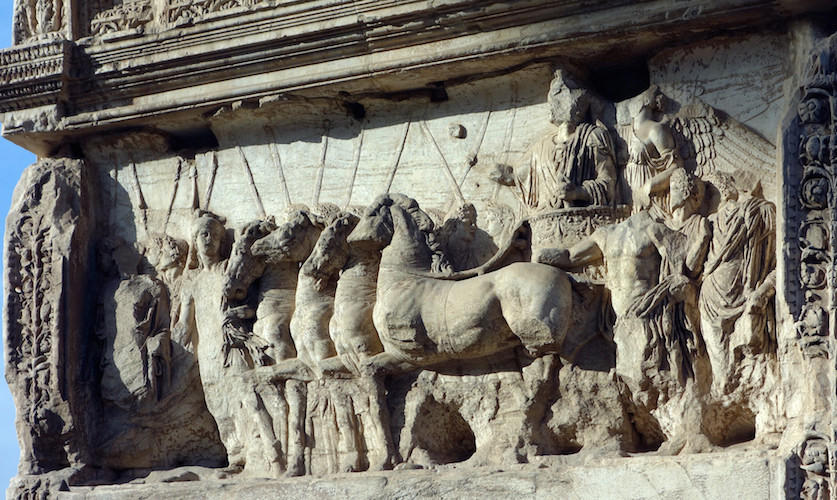
Triumphal scene, Arch of Titus (81 CE)
Propertius 3.4 (the ironic spectator at Augustus' imagined eastern triumph)
Divine Caesar plots war against wealthy India,
his fleet splits the gem-rich sea.
Great reward, men! the farthest earth readies triumphs;
Tigris and Euphrates will flow at your command.
Belated, this province will fall to Ausonian rods;
Parthian trophies will come to know Latin Jove.
Go now: war-tested prows, set your sails!
Martial horses perform your service!
I sing good omens. Avenge the Crassi and the slaughter!
Go and remember Rome's history!
Father Mars, fateful lamps of holy Vesta,
I pray that day will come before I die,
When I see Caesar’s chariot, spoil-laden,
Often halt the horses at the crowd’s applause;
lying in my dear girl’s arms I’ll endeavor
to watch; I’ll read the names of captured towns,
javelins seized from fleeing horses, bows of barbarian
soldiers, captured leaders posed beneath their arms!
Venus, preserve your child: may he live forever;
You see in him the Aenean line’s survival.
Let the spoils be theirs, whose labors earned them;
for me, to applaud from the Sacred Way will suffice.
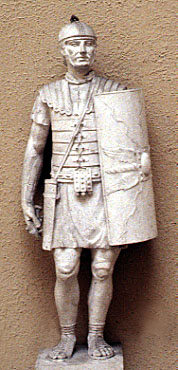
Propertius 1.7ff. (the "battle" between elegy and epic)
While you sing, Ponticus, of Cadmean Thebes,
and the grim arms of brotherly battles, [Eteocles, Polynices; Seven Against Thebes]
and contend, so help me with Homer himself,
(may the Fates be tender to your verse),
as usual, I’m busy with my love,
trying anything to soften her hard heart.
Compelled, I give up wit to obey
pain, and to complain of daily trial . . .
defining his target audience:
. . . May a spurned lover one day read me, desperate,
and find solace in my sorrows understood.
. . . Young men will break the silence at my tomb:
"Great poet of our passion, here you lie."
Take care—don't let your pride condemn my poems—
Late love too often makes you pay too much.
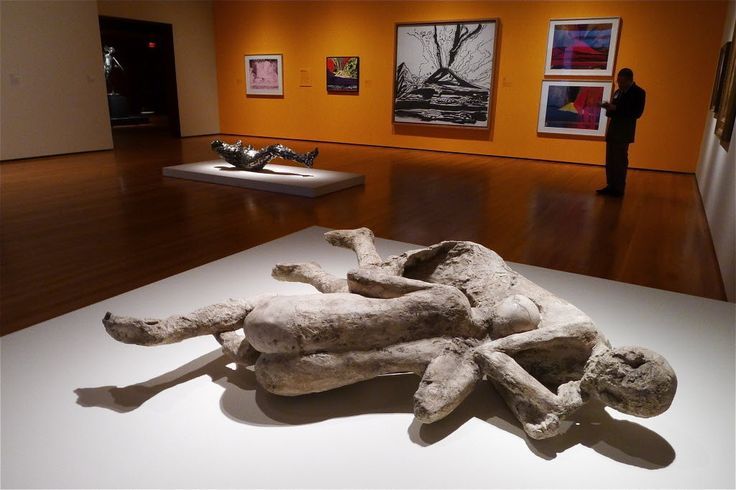
Plaster casts from Pompeii (National Archaeological Museum, Naples)
